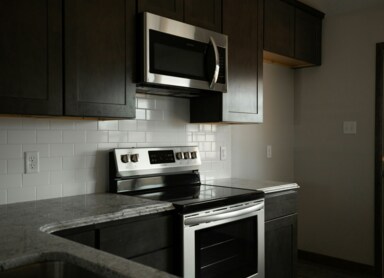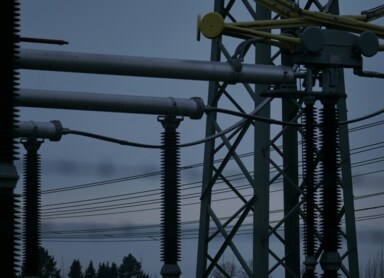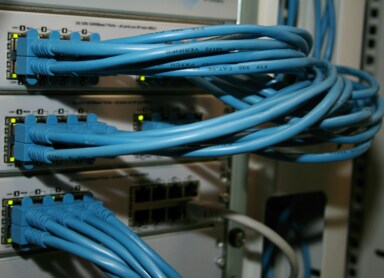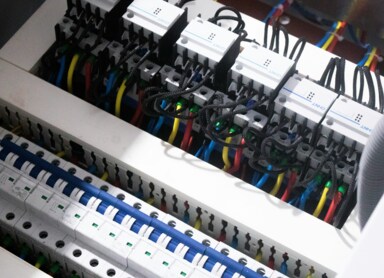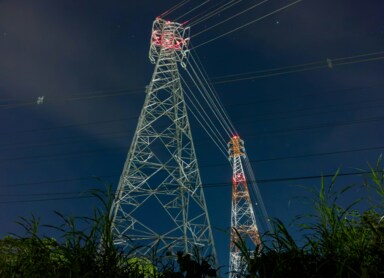Power outage – causes, solutions, and where to report a failure?
Access to electricity today seems like something completely natural. In practice, however, short-term outages occur regularly, significantly disrupting the lives of not only consumers but especially entrepreneurs, whose ability to conduct business typically depends on having a reliable power supply.
What are the common causes of power outages?
Who should you report them to, and what can you do to minimize the negative effects of such failures?
Power outage - possible causes and solutions
There can be many reasons for a power outage, and it’s hard to list them all.
The most common cause of damage to power lines is adverse natural conditions and disasters—floods, strong winds, landslides, storms, or even heavy rainfall and snow can damage elements of the power grid.
A lack of electricity may also result from overloading of the power system, a problem that becomes more serious in summer and winter when demand spikes due to widespread use of HVAC systems and heat pumps.
Because grid failures are hard to predict, it’s worth preparing in advance by investing in a backup generator or an appropriate photovoltaic installation (hybrid or off-grid).
Businesses located in older buildings, as well as residents of apartment blocks or tenement houses built in the 1970s or earlier, may encounter issues caused by outdated aluminum wiring. In the past, electricity demand was lower, so less durable aluminum was sufficient.
Today, heavier loads can lead to frequent tripping of circuit breakers. For over 40 years, copper wiring has been the standard.
If such problems keep recurring, the only solution is to replace the electrical installation.
In a small apartment, this service may cost several thousand PLN, while for industrial infrastructure the costs are likely to be much higher.
Keep in mind that the electricity provider has the right to cut power in an area due to testing or modernization of the power grid.
Information about planned outages can be found on your local distribution system operator’s (DSO) website, which should be your first point of reference.
It’s also possible that the customer simply forgot to pay the electricity bill.
In this case, settling the overdue payment is enough to have the power supply restored.
Fortunately, true blackouts are very rare.
Short-term outages may occasionally affect small communities, such as individual villages, but large-scale problems are uncommon.
For example, in October 2024, Cuba experienced a nationwide power crisis in which over 10 million people were left without electricity.
The power plant failure was fixed within a few days.
Where to call in case of a power outage
If the electricity goes out, the first step is to call the emergency energy hotline 991.
The intervention is free of charge if the problem concerns external infrastructure.
If the fault lies within your internal installation, you may be charged for the service.
Check your electricity sales/distribution contract for detailed conditions.
Before calling the emergency hotline, take these steps:
- Contact the building administrator to determine whether the failure affects shared areas of the property.
- Check the fuses or circuit breakers on the meter/fuse board. Modern boards have a classic On/Off switch, while older ones use screw-in fuses.
- Confirm whether the problem affects only your unit by asking neighbors or looking outside.
Many people don’t know where their fuse box is located.
It is usually found in the boiler room, garage, or basement.
Older installations typically had two or three fuses, whereas modern boards have more, allowing better control over the home’s electrical circuits and reducing the risk of a single fuse outage paralyzing the household.
⚠️ Never attempt to repair electrical network failures yourself.
This poses a serious risk of electric shock.
A professional can perform the necessary network measurements, identify weak spots, and replace them before a minor issue becomes a major problem.
Contact numbers for reporting power outages in Poland
Report outages promptly rather than waiting for someone else to do so, as this ensures quicker repairs.
Poland is divided among several Distribution System Operators (DSOs).
Changing the DSO is only possible by changing your place of residence or company headquarters and should not be confused with changing your electricity supplier.
- PGE – general number 991, Warsaw area 22 340 41 00
- Enea Operator – 991 or 61 846 32 99
- Tauron – online form or 991, 32 303 0 991
- Energa – online form, SMS “AWARIA” to 3991, or call 991, 48 58 767 43 50, or 801 404 404
- E.ON – 991, Warsaw 22 821 31 31
No power in outlets but fuses are fine – what to do?
If there is no power in the outlets but the fuses haven’t tripped—or if the lights work but outlets don’t—the problem may be a fault in the installation itself.
Possible causes include a damaged cable inside the wall (e.g., during renovations) or a faulty outlet.
Regularly inspect the electrical system and watch for loose or cracked fittings and overheating components.
Incorrect wiring is also possible, especially if previous repairs were done by amateurs.
To temporarily reduce the load on the network, consider disconnecting some devices, which is particularly effective in older buildings.
Energy Independence Tips
In today’s electrified world, a power outage can be particularly problematic for hospitals or large manufacturing plants, where even short outages may endanger lives or cause significant financial losses.
To reduce dependence on the public grid, it’s worth investing in modern photovoltaic systems.
They provide clean, stable energy ready for use regardless of the condition of the DSO’s grid.
Contrary to some outdated claims, electricity can now be successfully stored for later use with the help of an energy storage system, further increasing energy independence.

